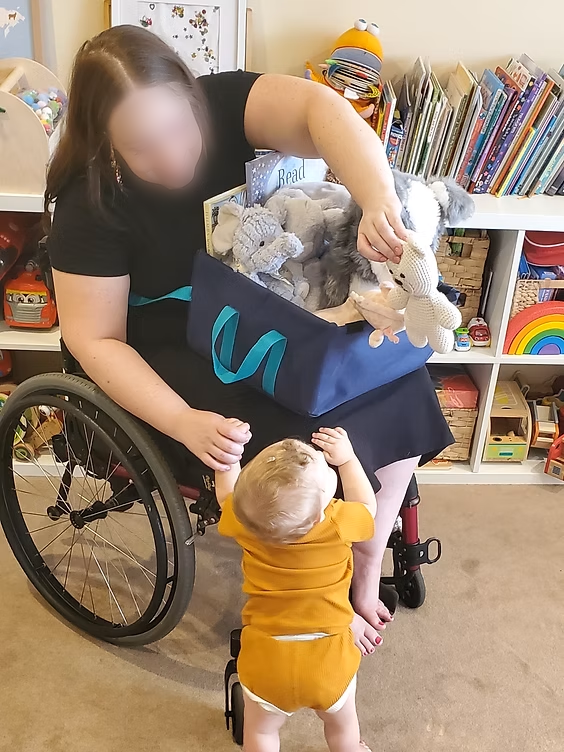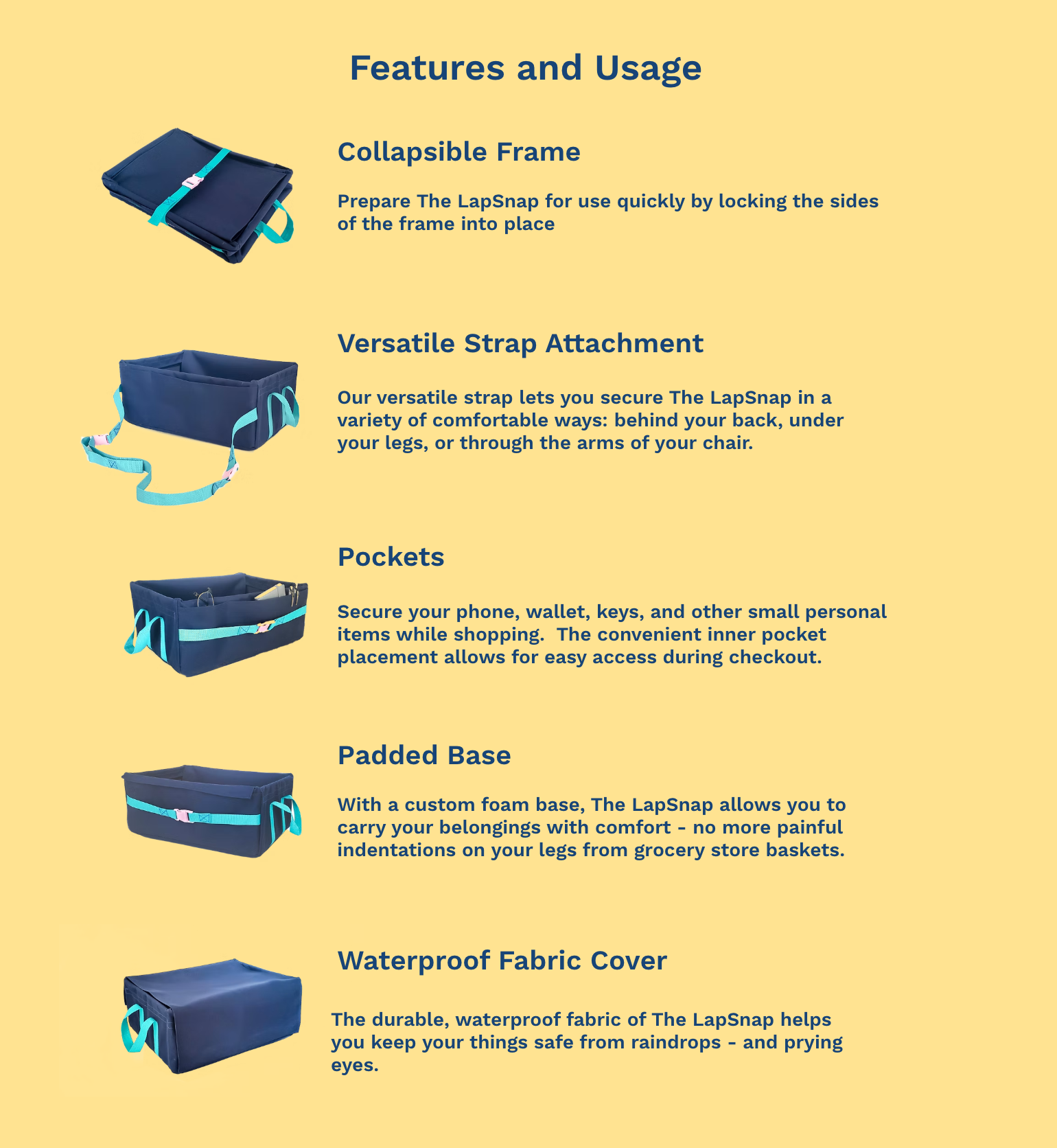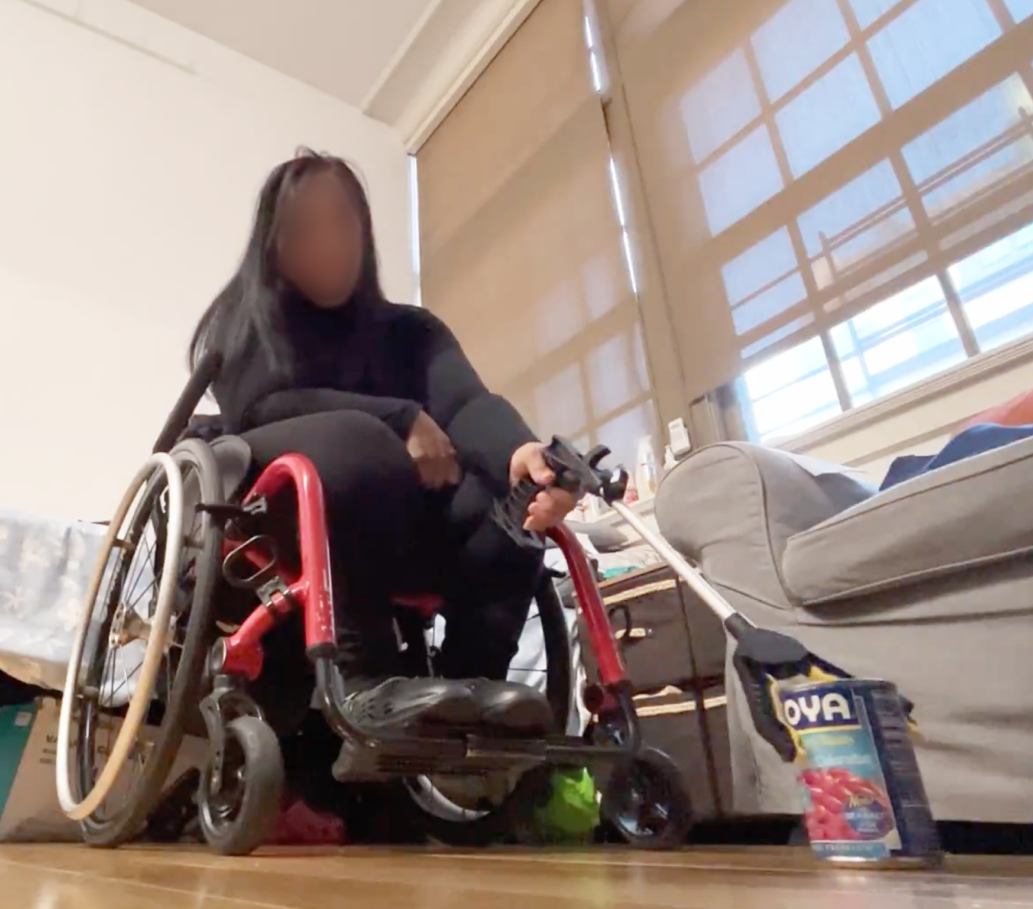Expanding LapSnap Market to Users with Limited Upper Limb Mobility (LUML)
Improved and optimized user research protocols and conducted interviews and developed prototypes of LapSnap product for four adults with limited upper limb mobility, leading to new business model and sales opportunity for Includesign.

Impact
Improved moderators guide templates for future user research to remove closed-ended and leading questions
Gained access to the previously untapped market of LUML wheelchair users through the LapSnap customization program

Overview: LapSnap Assistive Grabbing Device
The LapSnap is an assistive carrying device designed for wheelchair users which can be used for day-to-day activities such as grocery shopping, household chores, and gardening. While the product was designed alongside wheelchair users, the product was not initially usable for those with limited upper limb mobility.
Research goal: identify the unmet needs of wheelchair users with limited upper limb mobility.
Analyzed interview videos and transcripts from the company’s initial round of research with LUML users and identified areas for further probing
Planned a study with three wheelchair users with limited upper limb mobility, with a plan to build and test individualized prototypes
Insights
I developed prototypes for four product testers with different levels of upper limb mobility. Some of the variations based on the individual users included pinch strength, arm strength, and range and direction of mobility. Several features in particular worked well for all product testers, such as thumb loops added to the basket cover.
However, many of the features that significantly improved the usability of the product were individualized. For example, one user needed stiff rings instead of soft loops added, and another user preferred pockets in a particular location to accommodate for the range of motion of her dominant arm. The personalized adaptations were critical to making the product usable for those with limited upper limb mobility.

Impact
Includesign now offers personalized consultations for users with limited upper limb mobility, giving them access to a previously untapped market segment.
Moderator's guide redesign
Supplemented numeric ranking questions with open-ended questions
Encouraged interviewees to talk about their experiences in their own words, yielding insights on new topics that were not in the original scope of research.
Added participatory design question
Closed the gap between the design team and the end users, letting them provide valuable suggestions and ideas based on their firsthand experiences.
Added an open-ended imaginative question, asking the user to describe the LapSnap to an alien from outer space
Helped to uncover the user’s mental models and the big-picture categorization of the product and its usefulness.
Added a “tour” of the product to the interview script
Highlighted gaps between reported behavior and actual behavior while interacting with the LapSnap

